Our friend THNMD, a very active internet user, just got her Master Degree of Advanced Studies in Spatial Design ZFH at the ZHDK.
Congratulating with her (and with her tutor as well: another name that doesn’t sound new at all for Socks reader, Ethel Baraona Pohl) for such good news, we wish to publish here “Kriegsmaschine“, a very interesting study of the turbulent and forgotten past of Switzerland and project for a new contemporary deterritorialization in order to show “the other Zürich” .

KRIEGSMASCHINE PROJECT
Switzerland/Barcelona
2012.
Project Tutor: Ethel Baraona Pohl
“An ‘ideological,’ scientific, or artistic movement can be a potential war machine”
Deleuze and Guattari. A Thousand Plateaus. (1)
Exhibition Text:
During the decades of 1960’s until the 1980´s Switzerland braced a period of massive protests detonated by the Swiss Youth and as a consequence, the country faced a substantial process of de-territorialization, which according to Deleuze and Guattari is the “complex movement or process by which something escapes or departs from a given territory, where a territory can be a system of any kind : conceptual, linguistic, social or affective. “(A Thousand Plateaus, 1980). After some time, The Sovereign Power calmed down the riots and during the decade of the 90’s Switzerland seized a re-territorialized status. The project Kriegsmaschine is a part of a new, contemporary phase of de-territorialization in order to show “the other Zürich” by transforming a programmed , “well-behaved” urban space into something loud, vibrant and unexpected.

Description of the Project:
Kriegsmaschine Project has as point of departure the research of the history, motivations and appearance of protests, demonstrations and manifestations in the city of Zürich during 1968 (The Globus Riot) and 1980 ( Opera House Riot). In both years the actors and main participants were the Swiss youth. The aim of the project is the understanding of the present condition of the urban space through the active civic engagement of the lost collective memory.
Kriegsmaschine Project is structured in 3 parts or volumes.
1 / ARCHIVE: This stock comprises documents obtained at the Schweizerisches Sozialarchiv (newspapers, pamphlets, brochures), extracts from the complementary DVDROM of the book “ Der Zürcher Sommer 1968 Zwischen Krawall, Utopie und Bürgersinn” by Angelika Linke and Joachim Scharloth. Zürich. NZZ Verlag; 2008, videos and stills of on-line videos (source stated in each entry).
http://kriegsmaschineproject.tumblr.com/
2/ CARTOGRAPHIES: During the research, it became an important fact to visualize in the city the places where the protests and movements occurred. This is how a set of cartographies emerged: The first one called “Geography of Protests” (mapping the urban spaces where the protests of 1968 and 1980 took place) and the second: “Cartographies of Memory” (Urban spaces with important collective memory charge: in both years these places “sheltered” protests).


3/ ARCHITECTURAL NARRATIVE: DESIGNING AN EPHEMERAL ACTION FOR DEMOCRATIC PARTICIPATION.
The event “68/80” will be the mean for the citizens of Zürich to enable a process of remembering and then appropriate their contemporary socio-political history. The project takes as point of departure the Kriegsmaschine Archive, as a detonating element of conflict. “Information” as generator of collision. Collision being the purpose of second order,and information of first. The concept applied to the present project is “The city as archive” and Miessen´s concept: “The archive as a productive space of conflict”. (2)
The architectural/design proposal takes as theoretical framework Deleuze´s and Guattari´s theory on the “kriegsmaschine” or war machine. According to them, the war machine is an invention of the nomads, therefore is a nomadic element. This “war machine” can be any element that maneuver over a smooth surface (a given territory) and has war (or conflict) not as primary object but as second. The war machine triggers conflict in order to destroy (change/transform) the state-form and city-form (the urban space) with which it collides. The conception of the project follows those
theoretical lines. It consists on an ephemeral action: The event “68/80” with duration of 1 month where a series of urban spaces (noted in the cartography: Topographies of Memory) will be “re-colonized” by physical manifestations of the archive that will emerge in the urban spaces as intruding objects. Sculptural installations, itinerant archives and nomadic furniture will occupy. The citizens rather than “participate” in the Public Space, will “occupy” it. These objects will provoke a transformation of the given territories by subverting the actual program of the city space in question, hence de-territorializing it. Taking the city as already a given scenario, the present proposal seeks to generate not new forms to insert in the urban space, but rather marrow of forms. These devices with succinct body are inserted in order to explore, exploit and shift the present status of some urban spaces with strong collective memory charge in the city of Zürich. A new level of spatial appropriation takes place. Zürich will turn into something loud, where all students of the universities will be invited at the opening day, and will recite in chorus The Zürich Manifesto. The public space will become vibrant and will house the democratic participation of the citizen, while it is engaging new forms of communication with its city and history. The project main aim is to “open up a stage for productive” (3) and progressive conflict by triggering historical events colliding with the present.
The interaction amongst new digital layers (ex. Kriegsmaschine on-line Visual Archive), the physical layers of the city along with the new ephemeral action, generates a whole new territory. Perhaps this territory is “that” Public Space where democratic performance reigns and history makes its physical presence.









notes:
1 Deleuze and Guattari. A Thousand Plateaus (Capitalism and Schizofrenia)
2 See Marcus Miessen present study and forthcoming publication: „The Archive as a Space of Conflict„ For more see: http://www.studiomiessen.com/the-archive-as-a-productive-space-of-conflict/
3 Marcus Miessen´s words.
THNMD internet presence:
https://twitter.com/#!/____thenomad
http://pinterest.com/thnmd/
http://www.scoop.it/t/the-nomad
http://nomadicity.tumblr.com/
http://kriegsmaschineproject.tumblr.com/
http://plustank.tumblr.com/
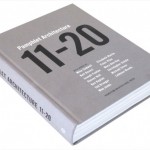
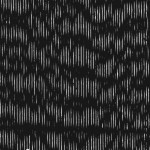
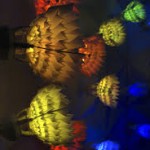
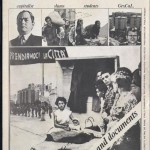
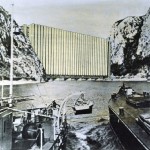
[…] Baraona ( not only an amazing writer, blogger, editor and co-founder of DPR Barcelona, but also my Master Thesis Tutor and friend), Mimi Zeiger ( Deezeen´s blogger and MUCH MORE ) and Alexandra Lange ( in my […]